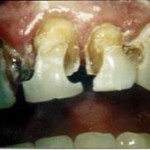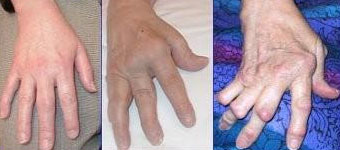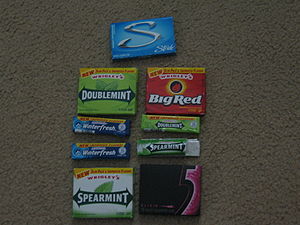Chewing gum has been around since the time of ancient Greece, where people made a chewable substance from the resin of the mastic tree. Chewing gum has evolved over time to where it is now sold in a variety of types and flavors. Adults and children alike enjoy chewing gum, but while chewing gum can have its advantages, such as freshening breath, it can also have its disadvantages. Being aware of the detrimental effects of gum can help consumers make healthful decisions when next purchasing and planning on chewing gum. Continue reading
Tag Archives: Dental caries
What Is the Reason for Root Canal Treatment on Teeth?
Root canal treatment (RCT) is a procedure whereby the pulp of the tooth is extirpated, and filled with suitable filling materials to replace the pulp. It is also known as endodontic therapy, and the sole purpose for endodontic therapy is to remove all the inflamed and necrotic tissues in the pulp, as well as the bacterial component, making the pulp and the root canals of the tooth as clean as possible. Continue reading
When to get a dental filling?
What is a  dental filling?
A tooth consists of enamel,dentine, pulp and cementum. Enamel is the outermost layer which forms the crown of a tooth. Tooth surface is covered by a bacterial biofilm,known as plaque. The bacteria metabolizes sugar and releases acid which destroys the enamel. This process is called decay or dental caries. When oral hygiene is inadequate, dental decay progresses into the dentine layer and in later stage, into the pulp. Decayed tooth is weak and brittle, thus it becomes soft, forming what is called cavity. A tooth damaged by decay needs to be filled to restore its normal function, shape and strength. Continue reading
Nerve Damage Symptom in Teeth
When infection damages the nerves inside the teeth, the symptoms are easy to notice and often painful. But that’s a good thing, because untreated nerve damage can lead to severe pain and even tooth loss. Dental surgeons can fix the problem before it becomes serious, so knowing when you have nerve damage can help you avoid its complications.
What is a tooth nerve?
The oral cavity is made up of an average of 32 to 36 teeth. Each tooth has its own function: grinding, masticating, cutting, shearing, and so on. The tooth nerve is called and referred to as the dental pulp. It is a complex organ composed of connective tissues, blood vessels, and nerve axons. It is pinkish in color and soft in nature. Its original function is in the development of and formation of the teeth themselves. These nerves are relatively large at a young age, but they slowly shrink and become narrow over the years of adult life. They serve the purpose to keep the teeth hydrated and allow the dentin to retain a certain amount of elasticity. It lies within the tooth and extends from the crown to the tip of the root in the jaw bone.
Invisalign-Problems arising from treatment
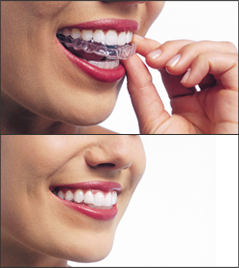 Invisalign is a series of clear,transparent, removable devices that are used to align teeth to the desirable position. It is used as an alternative to metal dental braces due to its cosmetic value. This cutting edge dental treatment is available in the U.S and a few other countries worldwide. A full set of treatment usually includes 20 to 30 aligners per arch, though the number varies for each individual. Each aligner is designed with exact calculations according to your teeth position to gradually shift your teeth into place. The invisalign system is custom made and each retainer is switched every two weeks. Continue reading
Invisalign is a series of clear,transparent, removable devices that are used to align teeth to the desirable position. It is used as an alternative to metal dental braces due to its cosmetic value. This cutting edge dental treatment is available in the U.S and a few other countries worldwide. A full set of treatment usually includes 20 to 30 aligners per arch, though the number varies for each individual. Each aligner is designed with exact calculations according to your teeth position to gradually shift your teeth into place. The invisalign system is custom made and each retainer is switched every two weeks. Continue reading
Is it possible to reverse tooth decay?
Have a problem with tooth decay? Tooth decay or otherwise called caries has been a vast predicament that affects most dentate people. According to the United States Surgeon General’s report, caries is stated to be the most common chronic childhood disease of children aged 5 to 17 years and is five times more common than asthma and seven times more common than hay fever.
How does our tooth get caries?
Tooth decay is a demineralization process of hard tissues in our mouth that are contributed by four major factors namely bacterial microorganism, sugar (carbohydrates), tooth surface and time. Without this four factors decay would not occur. A community of haphazard collection of bacteria on your tooth is called plaque.
This bio film of plaque is capable of fermenting carbohydrate substrates (sugars like sucrose and glucose) and producing acid causing the plaque pH to fall below 5 within 1-3 minutes. Repeated falls in pH results in demineralisation of tooth surface and leads to carious lesion formed.
How does arthritis affect your oral health?
Arthritis is a complicated disease, which affects the joints of the body. There are more than a hundred different described conditions, with osteoarthritis and rheumatoid arthritis being the two most common ones. Osteoarthritis involves degeneration of the synovial cartilage and bony overgrowth on the joint articulating surfaces. Rheumatoid arthritis on the other hand has an autoimmune origin, involving self-production of auto-antibodies in the body which circulates in the blood and can attack the joints which are deemed foreign by the immune defense system. Although osteoarthritis and rheumatoid arthritis have different causes and risk factors, they are often present with similar symptoms, such as constant joint pain. Both diseases can be debilitating and adversely affect your oral health if not managed accordingly. Continue reading
Can xylitol reverse tooth decay?
WHAT IS XYLITOL?
Xylitol is a naturally occurring sugar which is found in various fruits and berries such as strawberries,raspberries and plums. It is also known as “birch sugar” as it can be extracted from birch wood. Xylitol,when consumed, has the potential of reducing dental decay. On the other hand, sucrose (also found in fruits but with a higher sugar content), is a highly cariogenic sugar, meaning it yields high levels of acid upon fermentation. Therefore, substitution of sucrose with xylitol has the benefit of reducing the occurrence of dental decay. Continue reading
Oral Health Pt 2: Effects of toothbrushing, dietary sugars and acids

Toothbrushing improves oral health
What affects oral health?
The obvious answer would be oral hygiene care. Importance of tooth brushing cannot be stressed enough and the quality, rather than the quantity matters more. While most people brush two, some even three times a day, the truth is that it does not necessarily prevent you from dental problems such as dental decay or gingivitis especially if you are not brushing appropriately. Having a good tooth brushing technique is crucial to good oral health as being able to remove plaque effectively is directly related to the state of your mouth. In fact, some people with very good tooth brushing technique and reasonable sugar intake are actually able to get away with just brushing once a day without developing any dental problems. The only reason that dentists are advocating their patients to brush twice a day being most people of the population will fail to remove plaque adequately and requires that extra kick to help maintain oral health at good levels. Continue reading
Oral Health in relation to Dental Decay and Gum Disease
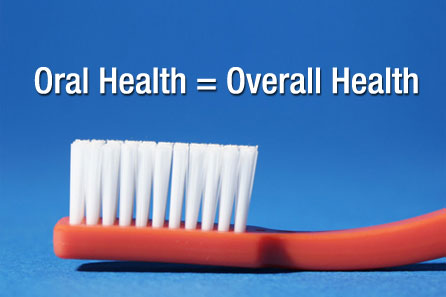 What is Oral Health ?
What is Oral Health ?
Oral health encompasses the health of our oral cavity. Our oral cavity (mouth) consist of our teeth and oral mucosa mucosa (gums). The health of our teeth is commonly compromised by bacteria which causes dental decay. Dental Decay is a dynamic process and it occurs due to a combination of a bad diet, insufficient oral hygiene care and bacteria in our mouth.


